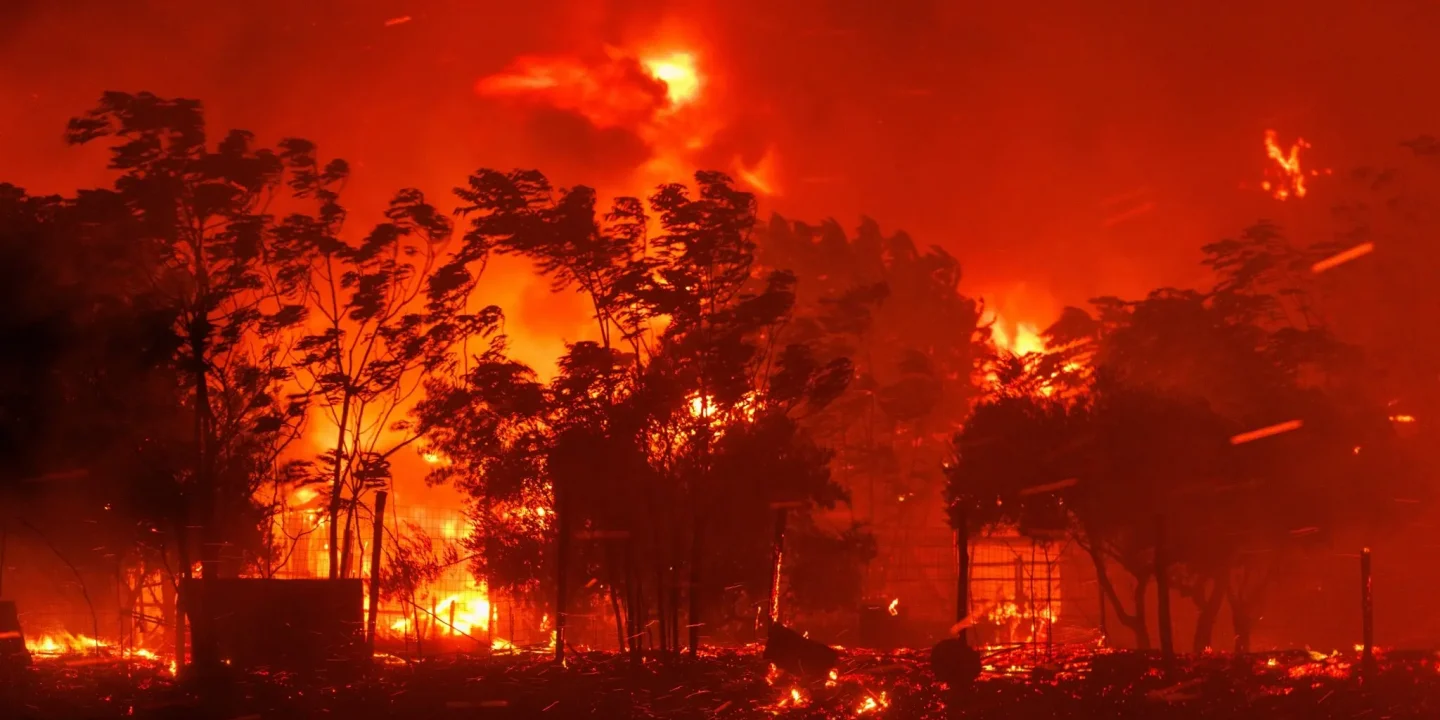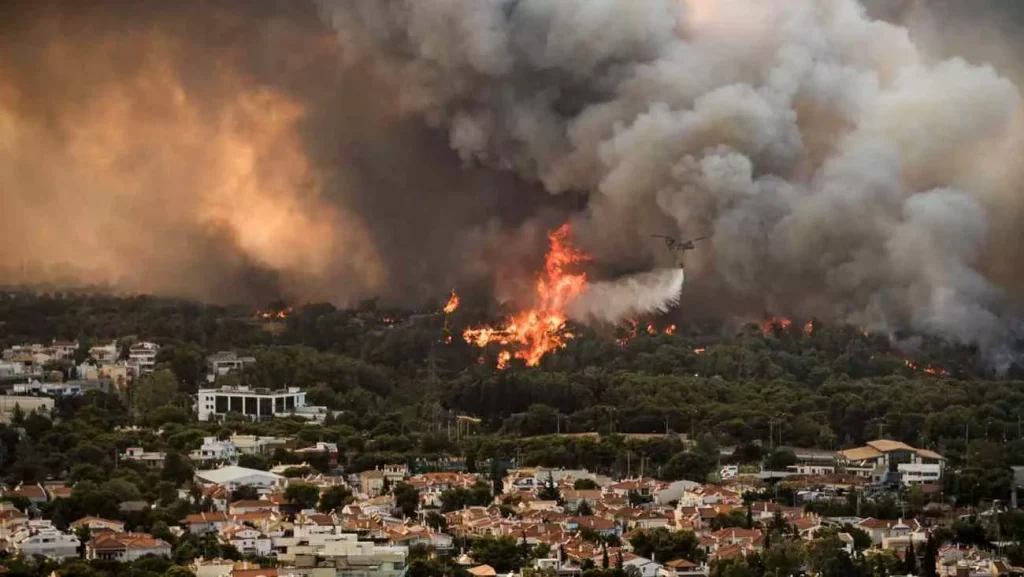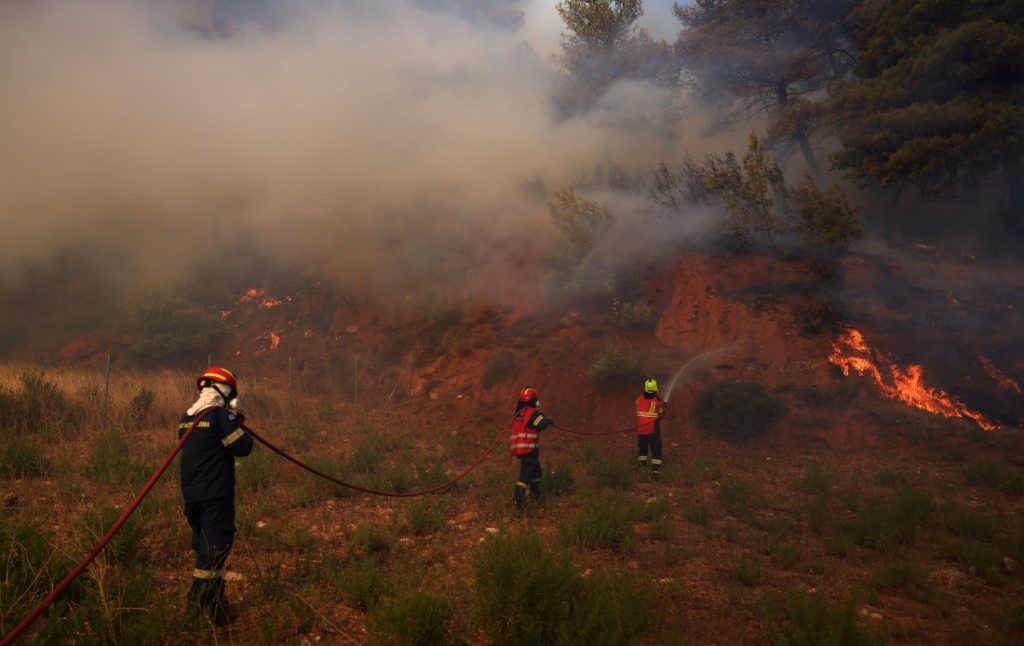
In August 2024, Greece faced an unprecedented wildfire crisis, with flames rapidly engulfing large swaths of land across multiple regions. One of the most severe incidents occurred on the island of Rhodes, where fires raged for over ten days, forcing more than 20,000 residents and tourists to evacuate. The blaze also threatened the historic city of Thessaloniki, where firefighters worked around the clock to prevent the fire from reaching the city center. In Evros, near the border with Turkey, the wildfires devastated the Dadia National Park, a critical habitat for rare bird species, leading to a tragic loss of biodiversity. Despite the tireless efforts of firefighters and international aid, the fires left behind a trail of destruction, displacing thousands and scorching tens of thousands of hectares of land.
This blog post dives into the heart of the crisis, exploring the factors that fueled these fires, the deep scars left on communities and nature, and the relentless battle to contain the blaze.
The Scale of the Disaster
Wildfires are not new to Greece, but the sheer magnitude and ferocity of the 2024 fires have been unlike anything the country has ever witnessed. It all began in mid-July, when a string of wildfires ignited and quickly spiraled out of control. As temperatures soared and the winds howled, flames engulfed vast swaths of the nation, from the sun-soaked islands of Rhodes and Evia to the mainland regions of Attica and Evros.

In just a few short weeks, more than 50,000 hectares of land were reduced to smoldering ruins. Entire villages were wiped off the map, and thousands of people were forced to flee their homes with nothing but the clothes on their backs. The iconic skyline of Athens, typically dominated by the majestic Acropolis, was veiled in a thick, choking haze. The economic repercussions are staggering, with the vital tourism industry taking a severe hit as visitors scrambled to escape the danger.
Contributing Factors
The wildfires in Greece have been fueled by a perfect storm of natural and human-made factors:
Climate Change
Southern Europe has been baking under increasingly intense heatwaves, and Greece is no exception. The summer of 2024 saw temperatures consistently soaring past 40°C (104°F), creating a tinderbox environment ripe for wildfires. Climate change is driving these extreme weather patterns, turning what used to be rare events into a terrifying new normal.

Relentless Winds
The infamous Meltemi winds, typically a feature of Greek summers, became a deadly force this year. Gusts reaching up to 80 km/h (50 mph) not only fanned the flames but also made firefighting efforts nearly impossible. The combination of dry conditions and relentless winds created a scenario where the fires could spread faster than they could be contained.
Human Activity
Unfortunately, human actions have also played a significant role in this disaster. Whether through carelessness—like a discarded cigarette sparking a fire—or through deliberate arson, people have added fuel to the fire, quite literally. These actions, whether accidental or intentional, have magnified the crisis, pushing it beyond the brink.
Response and Recovery Efforts
In the face of such overwhelming destruction, Greece has mobilized all its resources to fight back. Firefighters from across Europe have joined forces with Greek teams, battling the blazes with every tool at their disposal. From the air, planes and helicopters have dumped tons of water onto the flames, while on the ground, crews have worked tirelessly to create firebreaks and protect endangered communities.
The international community has not stood idly by. The European Union has pledged substantial financial support, and neighboring countries have sent reinforcements to help in the firefighting efforts. Evacuation centers have been set up to shelter those who have lost their homes, and emergency services are providing much-needed medical care and psychological support to the victims.
But the battle is far from over. Rebuilding the shattered communities and restoring the ravaged landscapes will require an enormous, sustained effort. It is a challenge that will test the resilience of the Greek people and the resolve of the global community to stand with them in their hour of need.
A Call to Action
The wildfires in Greece serve as a stark warning of what lies ahead in a world increasingly shaped by climate change. As the flames subside, the real work begins—rebuilding not just what was lost, but fortifying our communities and environments against future threats. This is a moment for global solidarity and swift action, to confront the root causes of this crisis and to ensure that such devastation does not become a permanent feature of our summers.
In the end, the resilience of the Greek people will undoubtedly shine through. But this crisis calls for more than just recovery; it demands a new approach to how we live with and protect our planet.
The future depends on the choices we make today, and it is imperative that we choose wisely!














